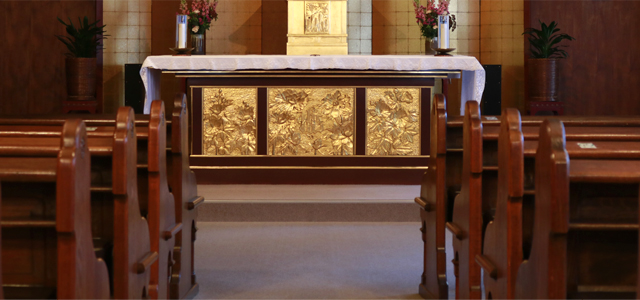
Catholic Q&A
There are some people whom I simply cannot forgive. Christianity teaches that if you do not forgive others, you cannot obtain forgiveness from God. Is there no salvation for people like me?
In the Lord’s Prayer, Christians say, “Forgive us our sins as we forgive those who sin against us.” These words have been quoted from the Sermon on the Mount, taken from the Gospel of Matthew. In the New Japanese Translation however, it is, “Please forgive our debts, and may we also forgive those who are indebted to us.” (Matthew 6:12). Following this, the scripture says, “If you forgive the mistakes of others, your Heavenly Father will also forgive your own mistakes.” However, it also says, “but if you do not forgive others, neither will your father forgive your mistakes.” (6: 14~15).
Indeed, if these words were taken literally, they would appear as though to say that if we were to make efforts to forgive others, God will forgive us in return. However, let us not get things wrong. Since the Gospel of Matthew was written for Jewish converts, many animated legalistic expressions tend to stand out in it. We should not overlook the essence of the Gospel of Christ. We do not mean to say that God rewards us with his grace because of the good deeds we perform.
Rather, the logic of the Gospel is just the opposite. It is only after we first receive the grace of God that we will be able to perform good deeds. Performance of good deeds by us happens to be the will of God. When we receive the forgiveness of God we will be able to undergo a change, and we will be able to forgive others. In fact this is the logic of the Sermon on the Mount, as revealed in Chapters (5~7) of the Gospel of Matthew.
The words, “Love your enemies” (Matthew 5: 43~48), are the same as the words, “If a person strikes you on your right cheek turn your left cheek to him as well” (Matthew 5: 39). Occasionally we come across people who say, “how can I do such a thing?” Or, “that is something I simply cannot do.” Yet these are not words that are too demanding or words that force you to clench your teeth, and neither do these words call upon Christians to be deceitful or adopt a pretense of virtue. Rather, what they say is that if we were to live in the grace of God, we will be able to accept those who hate us, and accept even those who do truly dreadful things to us.
In other words, the forgiveness of God is revealed by our mutual forgiveness of each other. The fact that we forgive one another is a sign that we have been healed by the forgiveness of God. Hence the prayer, “forgive us our sins just as we forgive others,” is a prayer that says, “remake us so that we may forgive one another,” and “when we forgive one another, may your forgiveness be revealed through those acts.”
It is due to the fact that we cannot forgive others that we need to pray earnestly. “Forgive us our sins as we forgive others” may be a painful prayer, which at times makes us feel as though we are vomiting blood. Owing to the fact that we are made of flesh we sometimes feel deeply hurt, and healing becomes very hard for us. When we recall the bad treatment we received in the past, even the thought of the person who ill-treated us makes us feel angry and resentful. That is the reason why we need first of all to heal ourselves. It is only when we ourselves have received the forgiveness and healing of God and are fundamentally changed, will we be able to interact with others differently.
